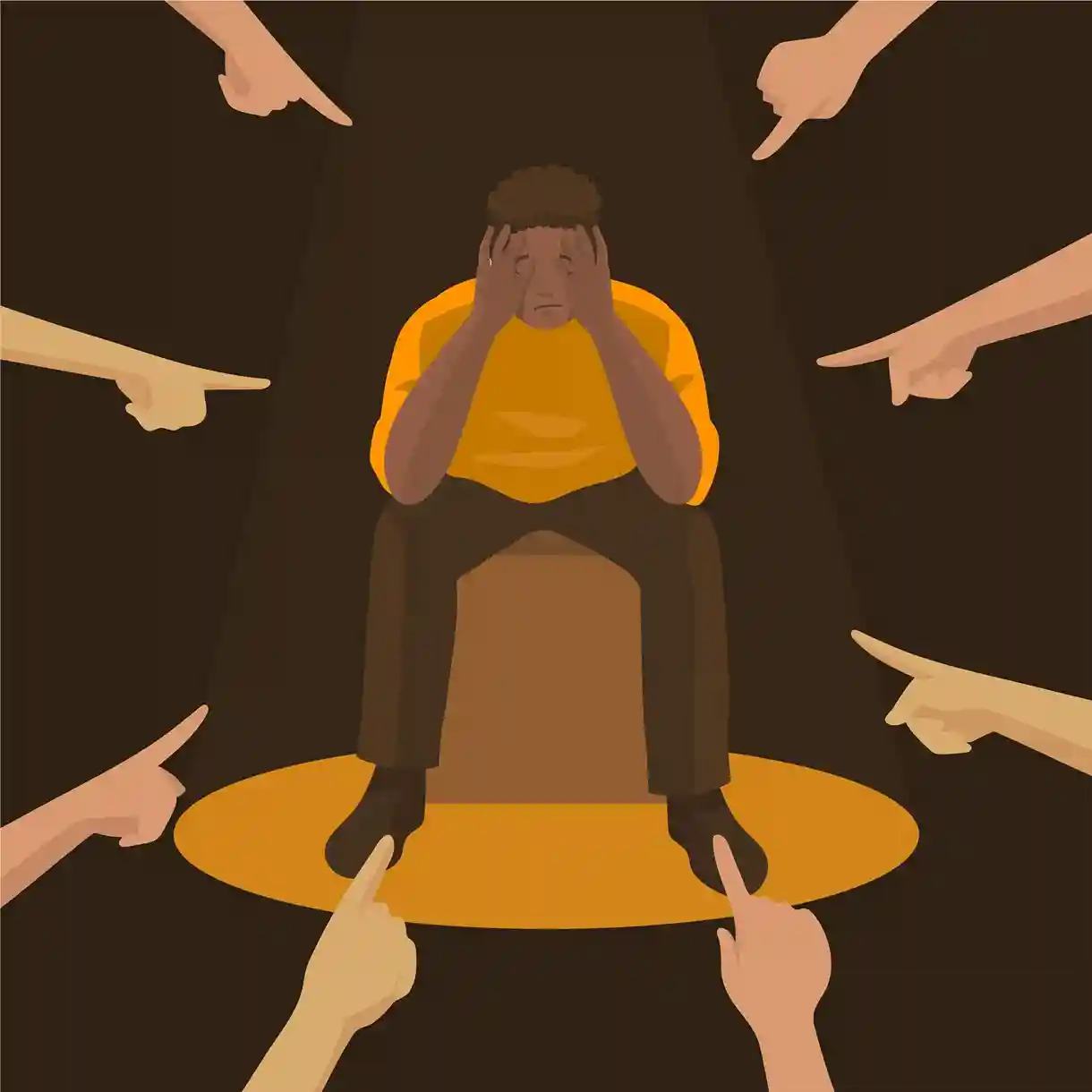Shame and self-hatred are deep personal struggles that can destroy entire lives—your relationships, your success in your career, your mental health. We’re not alone if you feel stuck in a loop of self-doubt and inner criticism. In this guide, we’re going to cover actionable steps on how to work through shame and self-hate and reclaim your self-worth.
Get to the roots of shame and self-hatred
In order to take the journey of freeing oneself of the pain of shame and self-hatred, we must understand where they come from. Often, shame comes from past things, such as being traumatized in childhood or feeling failure over and over again. On the other hand, self-hatred is a negative belief system that one has internalized against oneself, which often is a result of harsh self-criticism.
The first step to change is realizing these patterns. You may not be aware of it; however, without awareness, these feelings can grab onto your brain and lead you astray with your thoughts, decisions, and even your entire quality of life.
1. Start with Self-Awareness
First, you need to discover the shame and self-hatred you have toward yourself before you can begin to heal. Journaling is a great way to improve self-awareness. Describe the causes behind such emotions. Ask yourself:
- If I feel ashamed, then what do I think of?
- What beliefs about myself give rise to my self-hatred?
All this may reveal patterns related to particular events or even individuals. As you name your feelings, you can reduce their intensity and get a better picture of what brought them about.
2. Challenge Negative Beliefs
Challenging the negative beliefs that sustain shame and self-hatred is one of the most effective ways to defeat them. For instance:
- Instead of saying, “I’m a failure,” change it to “I am learning and growing.”
- In place of “I don’t deserve happiness,” try “I am worthy of love and joy.”
Do daily practice of positive affirmations. It will feel unnatural at first, but consistency will get your brain rewired to think healthier thoughts over time.
3. Practice Self-Compassion
Self-hatred is countered by self-compassion. If you would be kind to a close friend who was going through that, treat yourself the same way. This involves three key elements:
- Mindfulness: Be with whatever your pain is without judgment.
- Self-kindness: Support yourself by speaking to yourself gently.
- Common humanity: Be aware that people make mistakes and feel inadequate.
Self-compassion creates a safe space for you within yourself to heal yourself and grow yourself.
4. Seek Professional Support
Overcoming shame and self-hatred oftentimes needs professional help. If you haven’t gotten professional help for unresolved trauma, therapists in cognitive behavioral therapy (CBT) or eye movement desensitization and reprocessing (EMDR) can help you process the trauma and teach you healthier coping mechanisms.
If you are feeling overwhelmed, you should not hesitate to contact a counselor, psychologist, or support group. You, too, can fast forward your route to self-acceptance with professional help.
5. Build a Supportive Community
Shame thrives in isolation. If you feel it, talking to trusted family or friends can soothe your burden. It doesn’t feel as intimidating to be vulnerable if you are opening yourself up to a supportive community; connection, and ultimately loneliness, decreases.
If you find in-person conversations just too overwhelming, there are online forums or even social media groups for personal growth and healing.

6. Embrace Forgiveness
Shame and self-hatred need to be overcome with forgiveness. It is made up of forgiving yourself and others. Resentment takes you farther away from true happiness; it keeps negative emotions going and continues from there.
To start the process, try the following:
- Ask yourself: What’s holding you back from letting go and forgiving?
- Even if you never send it, write a letter to say how you feel.
- Don’t worry so much about the reconciliation; rather, focus on letting go for your own peace.
7. Cultivate Self-Worth
To overcome shame and self-hate, we need to build our sense of self-worth. This can include:
- Celebrating small victories.
- Doing things that give you joy.
- Setting boundaries to take care of you and protect your mental health.
- Keeping people around you that uplift and inspire you.
If you forget, just remember: your worth is internal and doesn’t need your validation from without.
8. Do Mindfulness and Meditation
Practices in mindfulness can assist you to release yourself from the practice of negative thought loops triggered by shame and self-hatred. Meditation, deep breathing exercises, and yoga soothe you and keep you present.
Guided meditations are offered by apps like Headspace or Calm to combat self-criticism and to reinforce self-love.
9. Look at setbacks as opportunities!
Challenges are everywhere, and it has been proven that how you perceive setbacks is what makes the difference. Instead of thinking of mistakes as proof that you’re the incompetent one, consider them as chances to gain more learning and development.
Ask yourself:
- What does this experience teach me?
- What can I do with this to get stronger?
Seeing obstacles in this new way can make them into stepping stones to becoming a more confident, more compassionate self.
10. Celebrate Your Progress
There is no steady healing, and you’re not going to get linear progress. From something as small as reframing a negative thought to simply practicing self-compassion in a tough situation, it’s time to let whatever little victory you achieved be your celebration. Congratulate yourself at this point for your push through your healing journey. Thank yourself for doing the hard work on your healing path.
11. Develop Healthy Habits
Develop Healthy Habits Leverage habits that help develop a strong, positive self-image. A couple of things that we need to remember: regular exercise, balanced nutrition, and enough sleep as it pertains to mental well-being. At the same time, these very practices fortify physical health and strengthen emotional ability to cope with shame and self-hatred.
Perhaps start your day out by using a gratitude journal or a short meditation to set you on a positive track. Small things that you can bring to your routine on a daily basis can start creating ripples of an improved outlook.
12. Educate Yourself
Knowledge is power. Books, workshops, and podcasts on how to overcome shame and self-hatred can teach you a lot and provide you valuable insights and strategies. The goal of educational content is to help you feel less alone and to give you practical tools for managing your emotions.
13. Practice Gratitude
Gratitude is your lens to see what you have instead of what you don’t have. Write down three things that you’re grateful for each day. Doing this practice is incredibly simple, and it can reframe your perspective from being that you haven’t done enough to acknowledging all the progress you are doing and what it actually means to be that happy.
14. Visualize Your Ideal Self
Visualization is a great method to inspire positive change. Imagine yourself when you conquer shame and self-hate; how do you walk, talk, and feel? Just use this image as motivation to take the actionable steps toward your goals.
Overcoming shame and self-hatred is not just about erasing negative feelings but about replacing them with understanding, self-compassion, and a renewed sense of worth. If you follow this guide and reach out for help when you need it, you’ll start on a path to a healthier, happier life.
FAQ: A Guide to Overcoming Shame and Self-Hatred
Which are the signs of shame and self-hatred?
Negative self-talk, a fear of vulnerability, an inability to receive and accept compliments, and feeling unworthy of love or success are all common signs.
How long does it take to begin to recover from shame and hatred towards self?
It is a very personal journey into healing, and the journey varies for each person. It can also take weeks, months, or even years, as well as depend on the individual and the level of support they receive.
Is there actually the possibility for mindfulness to work with shame and self-hatred?
Of course, mindfulness can make you aware and allow you to watch your thoughts without inviting judgment. This technique helps to weaken the power of negative thought patterns and creates a better relationship with yourself.
What if I should fall back into old patterns?
It is normal to relapse, which is part of healing. Instead of getting mad at yourself, try to think of a moment to reflect and mull over your mastery toward self-improvement.
Will self-help books help with getting over shame and self-hating?
Absolutely. Books such as The Gifts of Imperfection by Brené Brown or Self Compassion by Kristin Neff have really helped understand that process (that of personal growth) on a deeper level along with offering ideas and strategies.
Click Here for Reading More:
10 Must-Read Books to Build Confidence and Transform Your Life>>

